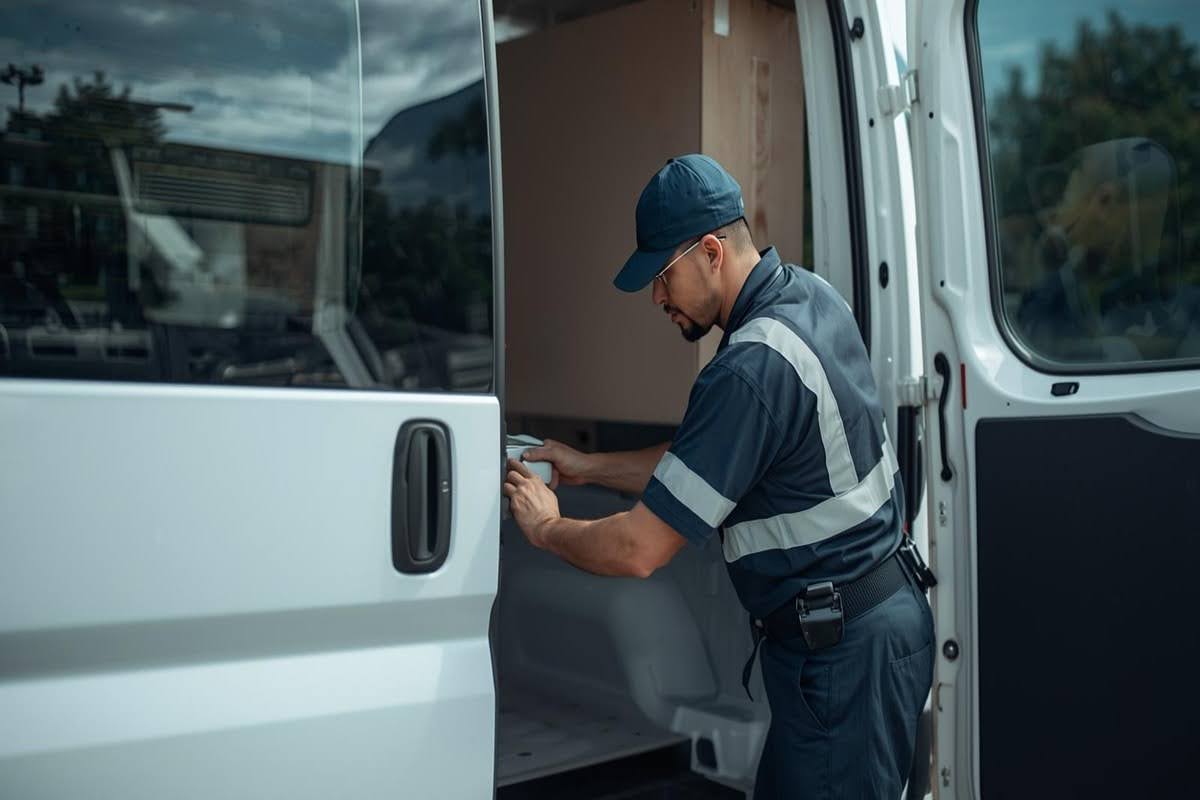Businesses and individuals that rely on courier services often expect more than timely deliveries; they also expect security for the intended recipient. With today’s digital world, technological advancements are providing courier service providers with both advantages and new challenges, especially regarding the safety of customer data.
Online bookings, mobile apps, and even tracking systems at every stage of the delivery process involve sensitive information, making security a top priority to enhance customer satisfaction.
With the rise of cyber threats, data breaches, and identity theft, customers’ expectations are now also leaning towards more secure delivery services. Courier companies using advanced technologies such as real-time monitoring systems, automated sorting, and artificial intelligence also provide strong security measures against potential threats while they enhance customer satisfaction.
With that said, let us look at a few ways that courier services protect customer data, especially while using innovative digital technologies and security measures, which play a vital role.
The Growing Importance of Security in Courier Services
When using a courier service, you share personal information, which often also includes sensitive information such as payment data. Data breaches could lead to severe consequences such as financial losses, identity theft and a breakdown of customer trust. This makes security a vital priority for reputable service providers using cutting-edge technologies, including tamper-evident features.
Prioritising security measures means that courier services can protect their customers’ sensitive information, packages and still ensure fast and secure delivery.
How Courier Companies Protect Customer Data
Because courier companies manage vast amounts of deliveries and customer data processing daily, including contact details, they require the right procedures, technology and security protocols to protect their customers.

Encryption of Data
Courier companies convert customers’ personal data into coded data only accessible by authorised systems. Thus, whether the customer enters their data through a mobile app, website or delivery service platform, it remains safe from hackers and security threats.
Robust Cybersecurity Measures
Courier companies also use cybersecurity measures such as firewalls and intrusion detection systems to protect customer data from cyber threats using advanced technologies. These robust cybersecurity measures within complex logistics allow customers to interact with modern delivery companies with confidence, knowing customer information is safe during the delivery process and all delivery operations.
Security Protocols
Courier companies implement strict security protocols and train their employees to handle sensitive information with care. Employees handling packages receive training on secure handling of sensitive documents and how to recognise potential threats. This helps to improve the customer experience and builds customer trust.
Regulatory Compliance
Courier service providers follow all data protection regulations and perform regular audits to ensure their delivery operations and digital platforms meet all necessary standards for data protection through technological advancements. Compliance helps to prevent data breaches and ensures the security of any sensitive information.
Automated Sorting
Automated sorting is a modern courier service that plays a crucial role in last-mile delivery, where a machine scans, categorises, and routes packages to improve delivery efficiency and prevent human error.
Beyond speed and efficiency, automated sorting protects customer data, reducing the risk of mishandling sensitive documents and high-value items in the face of unexpected events.
Advanced Tracking Systems
Advanced tracking systems, such as real-time tracking technology and GPS, provide full visibility of packages throughout the delivery journey. Using advanced tracking systems, courier services and customers can monitor their packages’ whereabouts and delivery routes, ensuring that they do not fall into the wrong hands.
Safe Delivery Operations
Behind the scenes, courier companies manage complex delivery operations between drivers, warehouses and distribution networks. These complex logistic operations, including route optimisation, are crucial to ensure safe deliveries and protect customer data with proper security measures in delivery operations.
With the integration of route optimisation, real-time tracking and scheduling delivery drivers, courier services keep customer data safe and ensure efficient delivery.
Contactless Delivery
One of the key trends in modern logistics is the rise of contactless delivery options. Contactless delivery options are a popular new choice for convenience and enhanced security. Courier companies use digital confirmations, verification codes and drop-off points that prevent direct contact during deliveries. This reduces the risk of interception and mishandling, and protects customer data to improve the customer experience.
Artificial Intelligence
Artificial intelligence is fast revolutionising modern courier services. The technology is used to predict delivery times, analyse routes, and detect any unusual activity that might indicate fraud. AI tools help courier companies to allocate their resources efficiently to reduce fuel consumption and keep sensitive information secure.
Conclusion
As the digital world grows more complex, courier services must protect both packages and customer data while addressing emerging challenges and ensuring timely and efficient delivery. Because of the constant threat of cyber threats and data breaches, courier companies can no longer afford non-compliance.
Service providers rely on technology such as automated sorting, artificial intelligence, real-time monitoring and tracking, and robust cybersecurity measures to ensure safety. These tools allow logistic companies not only to streamline their operations and improve their delivery operations but also to safeguard against security threats.

